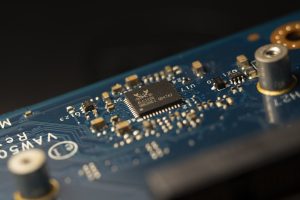Nano-Scale Power Systems: Microscopic Energy
As technology continues to advance and the need for sustainable and efficient energy sources increases, scientists and researchers have turned their focus to the realm of nano-scale power systems. These microscopic energy systems have the potential to revolutionize the way we power our devices, with the ability to provide high energy density in a compact and efficient form. In this article, we will explore the world of nano-scale power systems and their potential impact on the future of energy.
The Basics of Nano-Scale Power Systems
Nano-scale power systems, also known as micro power technology, involve the generation and harvesting of power on the nanoscale. This means that the energy produced or harvested is on the order of one billionth of a meter, making it incredibly small and compact. These systems are typically made up of nanoscale components such as transistors, capacitors, and inductors, which can harness and store energy from a variety of sources.
One of the biggest advantages of nano-scale power systems is their potential to be integrated into small electronic devices, such as sensors, medical implants, and even wearable technology. This could significantly reduce the size and weight of these devices, making them more convenient and versatile for everyday use.
How Do They Work?
Nano-scale power systems work on the principle of energy harvesting, which involves capturing and converting energy from one form to another. These systems can utilize a variety of sources, such as solar, thermal, kinetic, and even radio frequency energy. This energy is then converted into usable electrical energy through various processes, such as thermoelectric conversion, piezoelectricity, and electromagnetic induction.
The Advantages of Nano-Scale Power Systems
One of the key advantages of nano-scale power systems is their high energy density. Due to their small size, these systems can store a significant amount of energy in a compact form. This makes them ideal for powering small devices that require a high amount of energy, such as wireless sensors and medical implants.
Moreover, nano-scale power systems are more efficient than traditional power sources. This is because they can capture and convert energy at a much smaller scale, resulting in less energy loss during the process. In addition, their compact size and integration potential make them more convenient and cost-effective.
The Future of Nano-Scale Power Systems
As research and development in this field continue to progress, the potential applications of nano-scale power systems are vast. For instance, these systems could be used to power tiny medical devices that are implanted in the body, eliminating the need for frequent battery replacements. They could also be used in environmental sensors to monitor air and water quality, as well as in smart home devices to reduce energy consumption.
In addition, nano-scale power systems could play a crucial role in the advancement of Internet of Things (IoT) technology. The ability to power sensors and devices without the need for bulky batteries would allow for a more seamless and interconnected IoT network.
Conclusion
In conclusion, nano-scale power systems are an emerging technology with enormous potential in the world of energy. Their high energy density, efficiency, and integration capabilities make them a promising solution for powering small electronic devices. As research and development in this field continue to progress, we can expect to see a significant impact on the future of energy and technology. So, keep an eye out for these microscopic powerhouses as they pave the way for a more sustainable and efficient future.











